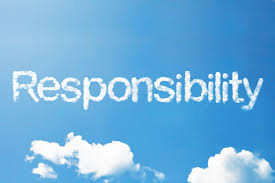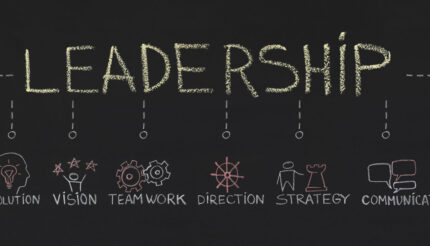Leadership and management are the twin engines that drive your business forward, towards your goals and aspirations. In the last of is comprehensive 10-point guide, we’ll explore key strategies to help you navigate the demanding landscape of leadership and management, sharing with you some of the tools to lead with clarity, purpose, and effectiveness.
Point 10: Ethics and Responsible Leadership
In today’s complex and interconnected world, ethical leadership is more important than ever. Ethical practices and responsible leadership are foundational to building trust, fostering a positive organisational culture, and ensuring long-term success. This article delves into the importance of ethical practices in modern leadership and how promoting integrity and responsible decision-making can transform organisations.

Importance of Ethical Practices in Modern Leadership
Ethical practices in leadership are crucial for several reasons. They establish a framework of trust, accountability, and transparency that permeates the entire organisation, influencing how decisions are made and how stakeholders perceive the company.
Building Trust and Credibility Ethical leadership builds trust and credibility by consistently acting with integrity, fostering strong relationships and ensuring a loyal customer base.
Enhancing Organisational Culture A commitment to ethical practices sets a standard for behaviour that promotes respect, fairness, and inclusion, improving morale and attracting top talent.
Mitigating Risks and Ensuring Compliance Ethical leadership mitigates risks by ensuring decisions comply with laws and standards, addressing ethical dilemmas proactively to avoid legal and financial issues.
Long-Term Sustainability Focusing on ethical practices ensures long-term sustainability by considering the broader impact on the environment, society, and future generations.

Promoting Integrity and Responsible Decision-Making Across the Organisation
Promoting integrity and responsible decision-making involves creating a culture where ethical behaviour is the norm and where all employees feel empowered to act responsibly.
Setting the Tone from the Top Leaders must model integrity and responsibility, sending a powerful message about the importance of ethical conduct throughout the organisation.
Establishing Clear Ethical Guidelines Clear ethical guidelines and a robust code of conduct provide a decision-making framework and should be regularly communicated and integrated into all organisational aspects.
Encouraging Open Communication Creating an environment where employees feel comfortable reporting ethical concerns is crucial, with open communication channels and a non-retaliatory policy for whistleblowers.
Providing Ethics Training Regular ethics training helps employees understand and apply ethical principles, using real-life scenarios and practical advice for handling ethical dilemmas.
Recognising and Rewarding Ethical Behavior Recognising and rewarding ethical behavior reinforces integrity and helps embed these values into the organisational culture.
Accountability and Transparency Holding all employees accountable and ensuring transparency in decision-making processes are vital for upholding ethical standards, supported by regular audits and performance reviews.
In conclusion, ethics and responsible leadership are essential for building a resilient and successful organisation. By emphasising the importance of ethical practices and promoting integrity and responsible decision-making across the organisation, leaders can create a positive and sustainable impact. In an era where trust and transparency are paramount, ethical leadership is not just a moral imperative but a strategic advantage.
“Leaders are learners”! To learn and refresh, come along to our next in-person seminar on Wednesday 26th June at the Cromwell Hotel, High Street, Stevenage SG1 3AZ. Follow the link below:






I just could not depart your web site prior to suggesting that I really loved the usual info an individual supply in your visitors Is gonna be back regularly to check up on new posts
Your blog is a breath of fresh air in the crowded online space. I appreciate the unique perspective you bring to every topic you cover. Keep up the fantastic work!
Thank you for the good writeup It in fact was a amusement account it Look advanced to far added agreeable from you However how could we communicate
Usually I do not read article on blogs however I would like to say that this writeup very compelled me to take a look at and do so Your writing taste has been amazed me Thanks quite nice post
I have been surfing online more than 3 hours today yet I never found any interesting article like yours It is pretty worth enough for me In my opinion if all web owners and bloggers made good content as you did the web will be much more useful than ever before
Hello i think that i saw you visited my weblog so i came to Return the favore Im trying to find things to improve my web siteI suppose its ok to use some of your ideas
I have been surfing online more than 3 hours today yet I never found any interesting article like yours It is pretty worth enough for me In my opinion if all web owners and bloggers made good content as you did the web will be much more useful than ever before
Wonderful beat I wish to apprentice while you amend your web site how could i subscribe for a blog web site The account aided me a acceptable deal I had been a little bit acquainted of this your broadcast provided bright clear idea
Advanced Monetization Options
Discover FlashUpload.cloud: Your Ultimate Online Storage Solution
Wow superb blog layout How long have you been blogging for you make blogging look easy The overall look of your site is magnificent as well as the content
For those looking to monetize their content, FlashUpload.cloud offers advanced monetization options. This allows users to maximize their revenue while using a secure and reliable platform. By choosing a premium plan, you can turn your passion into profit and explore new financial opportunities.
insurance agentI think that you could do with some pics to drive the message home a little bit,
insurance quotesyour authored material stylish. nonetheless,
insurance agents near meI think that you could do with some pics to drive the message home a little bit,
life insuranceI think that you could do with some pics to drive the message home a little bit,
admiral car insuranceyour authored material stylish. nonetheless,
Hello, i think that i saw you visited my weblog so i came to ?eturn the favor텶’m trying to find things to improve my web site!I suppose its ok to use some of your ideas!!
Love your work!
Somebody essentially help to make significantly articles Id state This is the first time I frequented your web page and up to now I surprised with the research you made to make this actual post incredible Fantastic job
you are truly a just right webmaster The site loading speed is incredible It kind of feels that youre doing any distinctive trick In addition The contents are masterwork you have done a great activity in this matter
gluco6 reviews : https://gluco6reviews.usaloves.com/
gluco6 reviews : https://gluco6reviews.usaloves.com/
Businessiraq.com is your essential online platform for navigating the Iraqi business world. This comprehensive resource combines a robust Iraq Business Directory with up-to-date Iraq Business News, plus a dedicated Job and Tender Directory. Our meticulously curated company profiles offer detailed information about Iraqi businesses, including specializations, financial health, and contact details. Stay informed about market trends and emerging opportunities with our news section. The Job and Tender Directory provides a centralized location to find employment and explore potential contracts within Iraq. Businessiraq.com streamlines your business interactions in the Iraqi market, fostering connections and opportunities for growth and success.